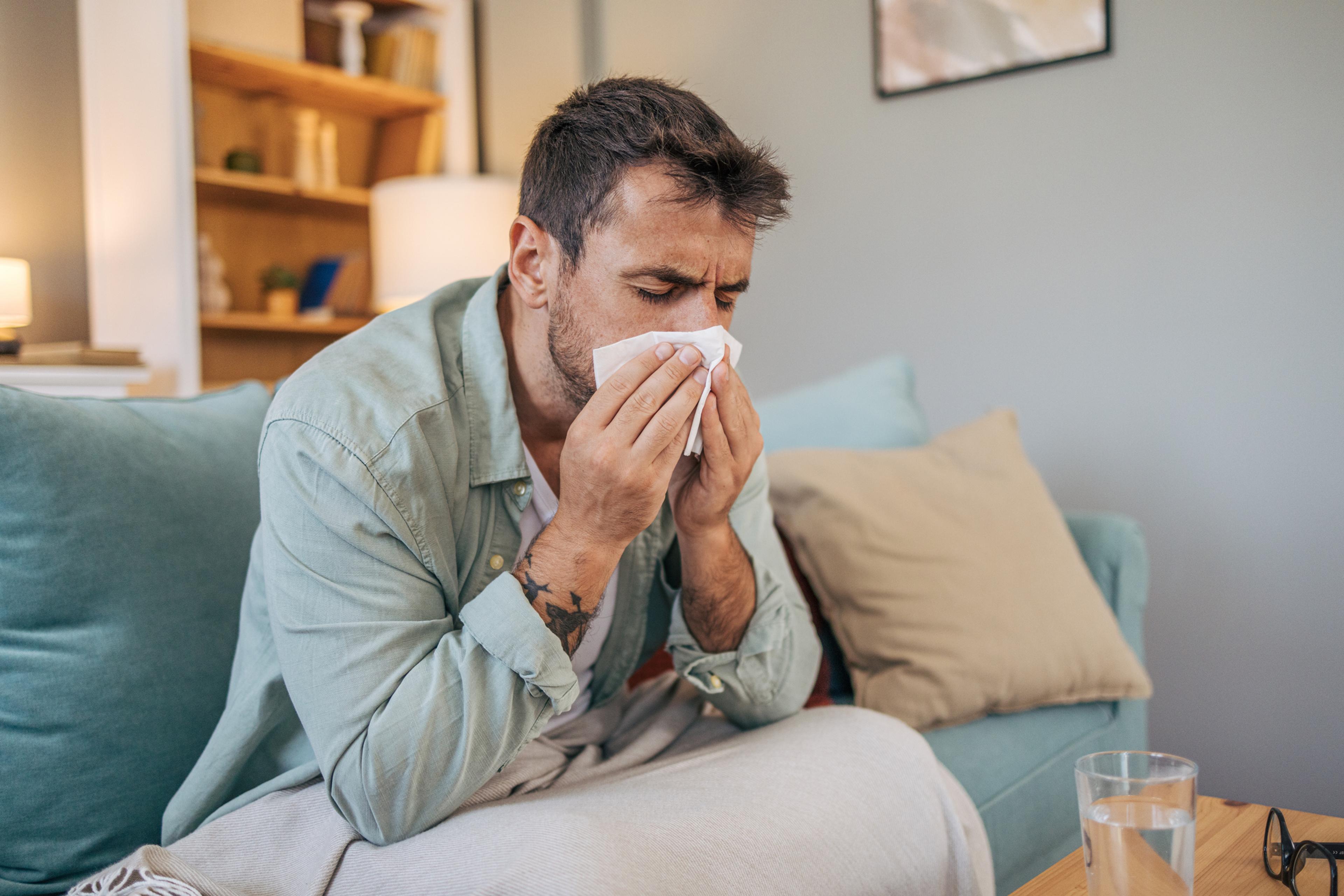What is Perimenopause?

Lindsay Knake
| 3 min read
Lindsay Knake is a brand journalist for Blue Cross B...

Key Takeaways
- Women in their 40s may experience perimenopause, a transition to menopause, marked by symptoms such as night sweats, irritability and irregular periods.
- Perimenopause typically lasts three to four years and can cause a range of symptoms, including hot flashes and mood changes, which can be managed with medication or lifestyle changes.
- Maintaining a healthy lifestyle, including a balanced diet, regular exercise and adequate sleep, can help ease perimenopause symptoms, and women should consult their primary care provider if symptoms are severe or interfere with daily life.
Night sweats, irritability and irregular periods can be signs of perimenopause for women in their 40s.
This is a transition to menopause, called perimenopause, which can last for several years. Learn more about perimenopause, the causes, symptoms and how to manage it.
What is perimenopause?
As women age, their ovaries produce less estrogen. This hormone is essential for the reproductive system and for bone, heart, brain and vaginal health. Your body’s hormonal balance between estrogen and progesterone is thrown off during perimenopause and menopause, according to the Cleveland Clinic. Because of this change, many women experience a range of symptoms that can cause mild discomfort to pain.
Everyone will experience perimenopause a little differently, but it typically starts with irregular menstrual periods. This can include heavy bleeding, spotting and long, short or missing periods, per the Cleveland Clinic.
Other symptoms of perimenopause include:
- Night sweats
- Hot flashes
- Mood changed such as irritability or depression
- Low libido
- Vaginal dryness
- Needing to urinate frequently
- Difficulty sleeping
Some women may have one or two of these symptoms, but most women have at least one. Aside from irregular periods, hot flashes are the most common symptom of perimenopause, according to Harvard Health. Your body can rapidly heat up, causing you to sweat and then feel chills. Hot flashes generally last from one to five minutes, and frequency varies from several times a day to a few each week. The cause of hot flashes is unknown.
Many symptoms are more uncomfortable than painful but talk to your primary care provider (PCP)about severe symptoms such as abnormal vaginal bleeding to rule out any other health conditions.
Most women will start to experience perimenopause in their mid-40s, but it can start in their late 30s or 40sunless they have sudden menopause from a health condition or surgery. Perimenopause typically lasts three to four years and ends at the onset of menopause, which is at the average age of 51, according to Harvard Health. Menopause begins 12 months after a woman’s final menstrual period.
It is possible to get pregnant during perimenopause, but not during menopause.
How to treat and manage perimenopause
Perimenopause is a normal part of life and aging, and most women will have mild symptoms. However, talk to your PCP if you are struggling with any of them. According to Harvard Health, there are different medications your PCP may prescribe or recommend to help with symptoms that cause pain or interfere with daily life:
- Low-dose birth control to manage hormones.
- Antidepressants for depression or anxiety.
- Vaginal creams can aid with dryness.
- Hormone replacement therapy to replace estrogen levels, which is safe and effective.
Living a healthy lifestyle is one way women can ease the symptoms of perimenopause. Here are tips to manage perimenopause without medication:
- Eat a nutritious diet with recommended servings of fruits, vegetables, whole grains, lean protein and healthy fats.
- Get 150 minutes of exercise a week, including strength training or weight-bearing exercise.
- Get seven to eight hours of sleep.
- Maintain a healthy weight.
- Limit alcohol.
- Manage stress.
- Notice hot flash triggers and try to avoid them.
- Dress in layers to manage hot flashes.
Image: Getty Images
Related:





